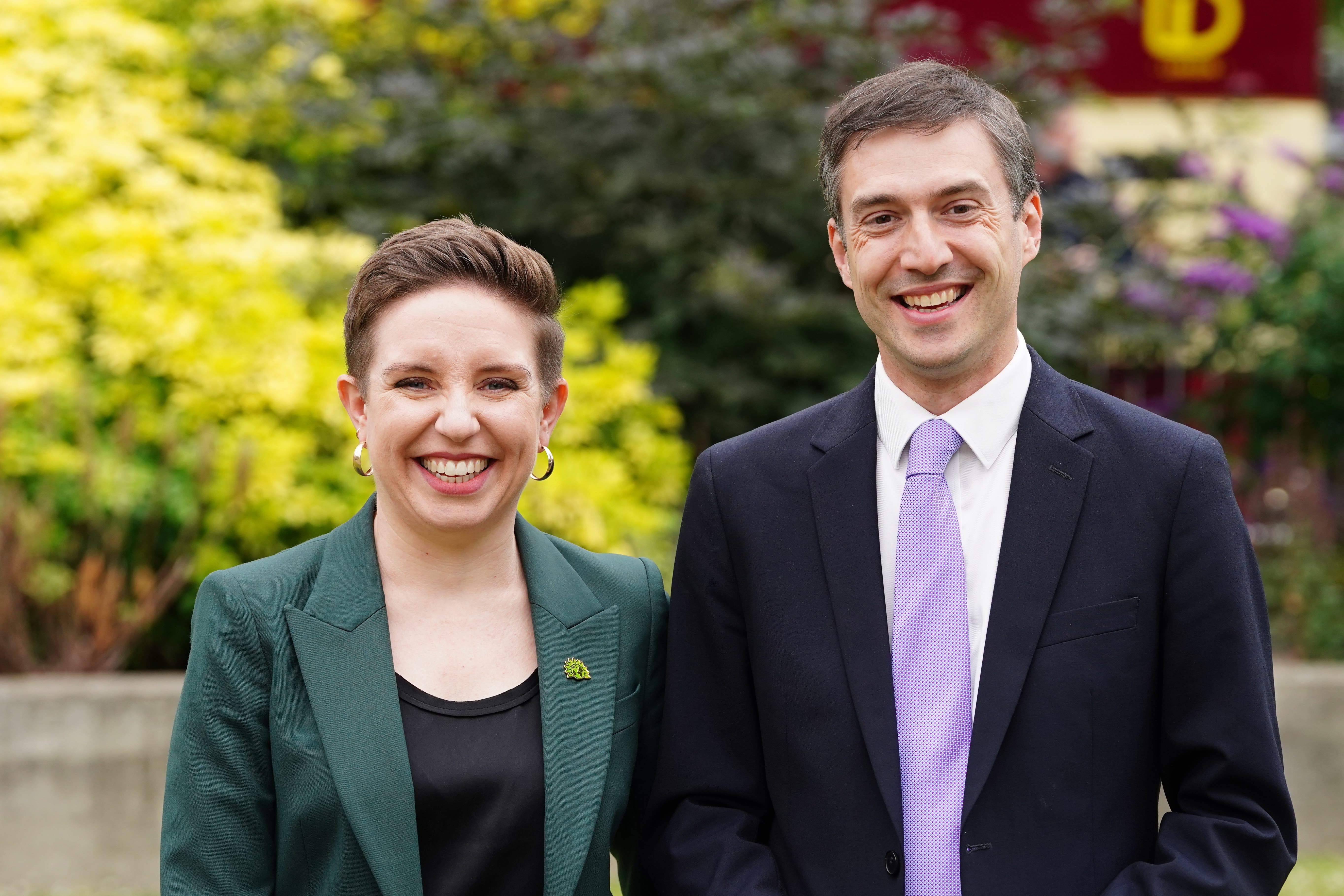Greens, pro-Palestine independents and Lib Dems: Could they bring Labour down?
As the Green Party holds its annual conference, John Rentoul looks at the challenge to Keir Starmer – and it’s not the opposition


The Green Party has been vindicated. Not only did it win four seats at the general election, which was four times as many as I thought it would win (and twice as many as other forecasts), but its dual leadership has saved the day at its annual conference in Manchester.
Carla Denyer, one of their co-leaders, is staying away because of Covid-like symptoms, meaning that Adrian Ramsay, their other co-leader, is stepping up. In a party with a deep suspicion of the very concept of leaders – the polar opposite of Tony Blair’s vision set out in his book, On Leadership, and the interviews to promote it this week – it falls to Ramsay alone to “facilitate” a party engaged in self-congratulation.
The Greens have finally proved that they are an electoral force to be reckoned with. In Ramsay’s own seat of Waveney Valley in East Anglia, and in Ellie Chowns’s seat of North Herefordshire, the Greens showed themselves to be an effective third member of the anti-Conservative alliance.
The Liberal Democrats are the usual beneficiary of tactical voting in places where Labour couldn’t win, but the Greens showed that they could substitute for the Lib Dems in a few places.
More significant for the future, though, was Denyer’s own election win in Bristol Central, where she unseated Thangam Debbonaire, a member of Labour’s shadow cabinet.
That proved that the Greens could also gain seats from Labour – in addition to their established stronghold in Brighton Pavilion, which was Caroline Lucas’s seat for 14 years, and which would otherwise be a Labour constituency.
It is the Green threat to Labour that could prove significant next time. In this year’s election, Keir Starmer didn’t need to worry too much about his left flank. I’m sure he is sincere in expressing his sadness at Debbonaire’s departure, and he was a little nervous about pro-Palestinian independent candidates taking Labour votes, but on election day these were bumps in the road that could barely be felt aboard the steamroller as it thundered to its 174-seat majority.
The next election could be different. A government wrestling with the unpopularity of tough decisions could find itself losing votes not just to a resurgent Conservative Party on the right – or even to a Conservative Party doing slightly less badly than last time – but to an anti-government alliance to its left of Greens, pro-Palestinian independents and Lib Dems.
Starmer knows about pro-Palestinian candidates in supposedly safe Labour seats because he was up against one in Holborn and St Pancras, his central London constituency. Andrew Feinstein, who said Starmer was “terrible on Gaza”, came second with 19 per cent of the vote, and the Green came third with 10 per cent.
The issue of Gaza is one that brings together several cross-currents on the so-called left. Jeremy Corbyn, who held his Islington North seat as an independent, has joined the Independent Alliance group in parliament with Muslim independent MPs elected in Birmingham, Leicester, Dewsbury and Blackburn. The most important part of the potential anti-Labour alliance, though, is the Lib Dems.
In the past, Lib Dems have been prepared to associate with some forms of sectarian politics – David Ward, the Lib Dem MP for Bradford East, lost the whip in 2013 for questioning the right to exist of the Israeli state. Recently, the Lib Dems seem to be happier to leave that kind of thing to elements of the Green Party. At least three Green candidates were dropped before this year’s election when their opposition to Israel tipped over into antisemitism.
Assuming that the “left” opposition to Starmer can avoid the toxic politics of paranoid antisemitism, however, the Lib Dems, with 72 seats, their largest parliamentary representation since the Liberals in 1923, could be the main beneficiaries of Labour unpopularity.
They have already been handed the gift of the cut in pensioners’ winter fuel payments, which allowed Ed Davey, after a brief pause to think about it, to adopt a position to the left of Labour – mind you, the Tories are opposing the cut too, which only confirms why I am cautious about using the terms “left” and “right”.
The Lib Dems’ previous high point was 62 seats in the 2005 election, when they opposed the Iraq war under Charles Kennedy’s leadership – again taking a position seen as being to Labour’s left.
Starmer’s landslide election win was magnified by tactical voting as Labour and Lib Dem voters engaged in an implicit electoral alliance against the Tories. But it was an election victory secured by a mere one-third of the votes. That makes Labour vulnerable next time to being squeezed simultaneously from the left and the right.
At the next election, disaffected Labour voters might turn to the Lib Dems and to pro-Palestinian independents, possibly organised into a new party. And Thangam Debbonaire may not be the last Labour MP to lose to the Greens.






Join our commenting forum
Join thought-provoking conversations, follow other Independent readers and see their replies
Comments